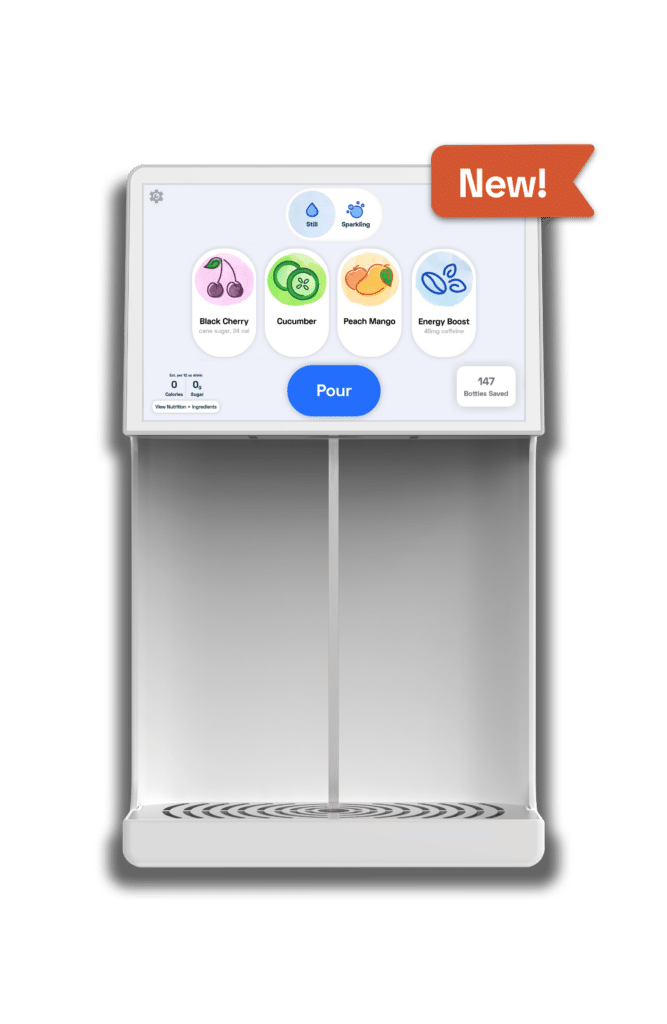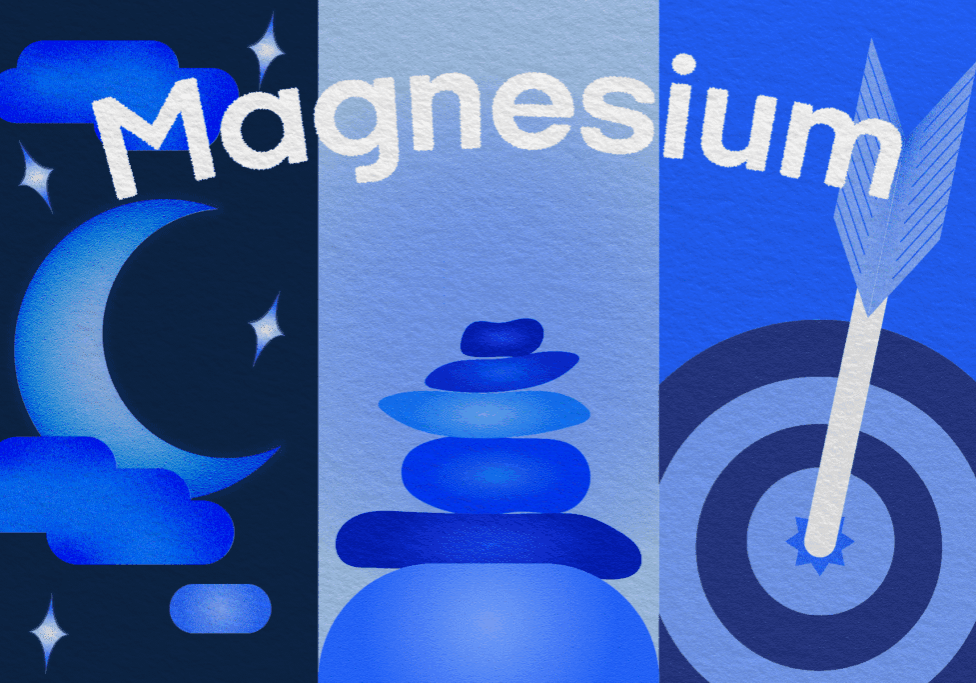Walk down any supplement aisle or scroll #VitaminTok, and you’ll see it: magnesium. But with every bottle promising better sleep, less stress, or laser-sharp focus, it’s hard to know what’s hype and what’s true. Citrate, glycinate, L-threonate: the magnesium options blur together fast. Which one should you get?
This guide cuts through that clutter. We’ll break down the most common forms of magnesium, what the research actually says, and how to choose the best magnesium supplement based on your goals—no chemistry degree required (or influencer endorsements allowed).
What exactly is magnesium and why is it essential?
Magnesium is a dietary mineral that powers over 300 enzyme reactions, from turning food into cellular energy (aka Aadenosine Ttriphosphate, or ATP), to regulating muscle contraction, nerve firing, and DNA synthesis.
Adequate levels support steady heart rhythm, sturdy bones, and neurotransmitter balance, which explains why it is often linked to benefits like better sleep, calmer mood, and fewer muscle cramps. Some research even links optimal magnesium to sharper working memory and reduced PMS discomfort.
Despite these findings, nearly half of U.S. adults fall short of the daily 310 to 420 mg recommended allowance because modern diets rely heavily on refined grains and bottled beverages that are low in minerals. That shortfall—often signaled by fatigue, muscle twitches, or lingering stress—drives many people to consider supplementing their diet with Mg supplements.
With so many types lining the shelves, however, each promising distinct benefits—from sleep to mood—magnesium supplements can be deceptively difficult to choose between.
The three types to know
Not all supplements work the same way. The type of magnesium you’re ingesting changes how well your body absorbs it, what effects you’ll feel, and even how your gut reacts.
Magnesium Citrate
Combined with citric acid, making it easy for the body to absorb and also giving it a mild laxative effect. It’s a common, affordable choice for boosting magnesium levels and supporting digestion. (PubMed: PMID 27980423)
Magnesium Glycinate
Bound to the amino acid glycine, known for its calming properties. It’s gentle on the stomach, well absorbed, and often used to support relaxation, stress reduction, and better sleep without causing digestive side effects. (PubMed: PMID 34626182)
Magnesium L-Threonate
Combined with L-threonic acid (a vitamin C metabolite) and is notable for its ability to cross the blood–brain barrier. Research suggests it may enhance memory, learning, and sleep quality by raising brain magnesium levels, though it’s more expensive and less studied than other forms. (PubMed: PMID 23089474)
Trying to stay focused?
In summary
Your choice of supplementation form should match your wellness goals. For a good night’s sleep and calm mood, glycinate is a top recommendation due to its high absorption and calming glycine component.
If you’re more focused on brain power, memory, or age-related cognitive support, L-threonate is worth the investment; it’s specifically shown to benefit brain health and also carries some sleep and mood benefits.
If your needs are more basic, like general supplementation or constipation relief, citrate is a reliable and cost-effective form to increase your magnesium intake (just watch out for the laxative effect at higher doses).
Keep reading stories on Bevi’s blog
- How to (actually) improve student satisfaction on campus
- The myth of aluminum rebellion
- 6 innovative ideas for college campuses to improve their dining halls
- Thanks a billion! Bevi hits bottles saved milestone
- What the fervor for functional beverages means for campus dining
- A very spooky Bevi machine: 2025 Halloween flavor icons
- L-theanine 101: The sneaky popular nootropic in your drink
- How to stay focused at work (even with distractions)
- Magnesium 101: Supplement for sleep, stress, and focus
- Stevia 101: Is stevia bad for you?
- Vitamin B12: How it works & why it helps
- Focus Blend: Calm, lasting focus without high caffeine
- Blog series: The rise of today’s iconic drink brands
- Vitamin Boost: Our most popular enhancement
- Every bottle counts: Beverage industry impact report
- These London-based companies love their Bevi machines
- Owala water bottle vs. Stanley Quencher: Choosing the best stainless steel water bottle





